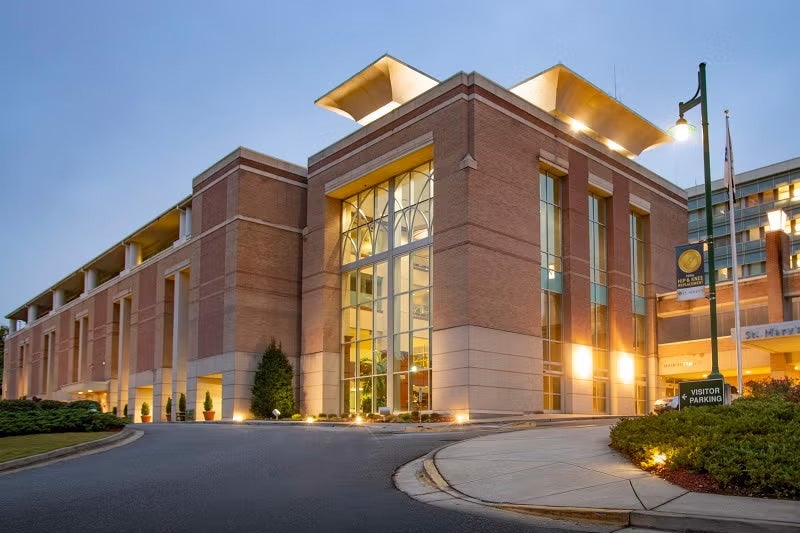Expert Hernia Repair at St. Mary’s Health Care System in Athens, GA
Welcome to St. Mary's Health Care System, where we’re here to help you feel better and get back to living your life. Our skilled surgeons specialize in advanced, minimally invasive hernia repair and abdominal wall reconstruction right here in Athens, GA. By using the latest robotic technology, we aim to make your surgery as smooth as possible — reducing complications, shortening recovery time, and lowering the chances of your hernia coming back.
Visit Our Greensboro Location Visit Our Athens Location
Hernias can cause discomfort and interfere with your daily life, but at St. Mary’s, we’re here to help you find relief. Our skilled surgical team specializes in hernia repair, offering both traditional and minimally invasive techniques to ensure the best possible outcome. From diagnosis to recovery, we provide compassionate, expert care every step of the way. If you’re experiencing symptoms of a hernia, don’t wait—let St. Mary’s guide you toward healing with the support and expertise you deserve.
What is a Hernia?
A hernia is a defect or weakness in the abdominal wall that often occurs between or at the edges of the muscle lining. Locations typically are in the middle of the abdomen, at the umbilicus, and inguinal (groin) regions. Hernias at sites of previous surgeries or incisions are also common, called an “incisional hernias”. When a hernia occurs, part of your internal organs or tissues can push through the weakened area, causing a visible bulge and/or pain.
Some hernias can be more challenging to treat, especially if:
- The hernia opening is larger than 8 cm (3 in): A bigger gap in the abdominal wall.
- Multiple failed hernia repairs: The hernia came back after past surgeries.
- Loss of abdominal domain: When abdominal organs have shifted outside the abdominal cavity.
- Fistulas or previous mesh infections: Abnormal connections between organs or past issues with surgical mesh.
- Higher BMI or conditions like diabetes, obesity, tobacco use: Health factors that can make surgery more complex or compromise wound healing.
- Past open abdominal surgeries: Previous large-incision surgeries that may weaken the abdominal wall.
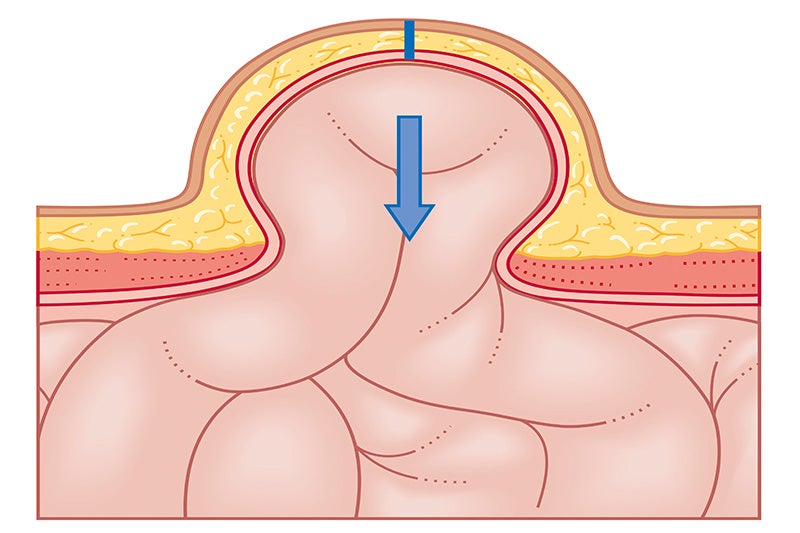
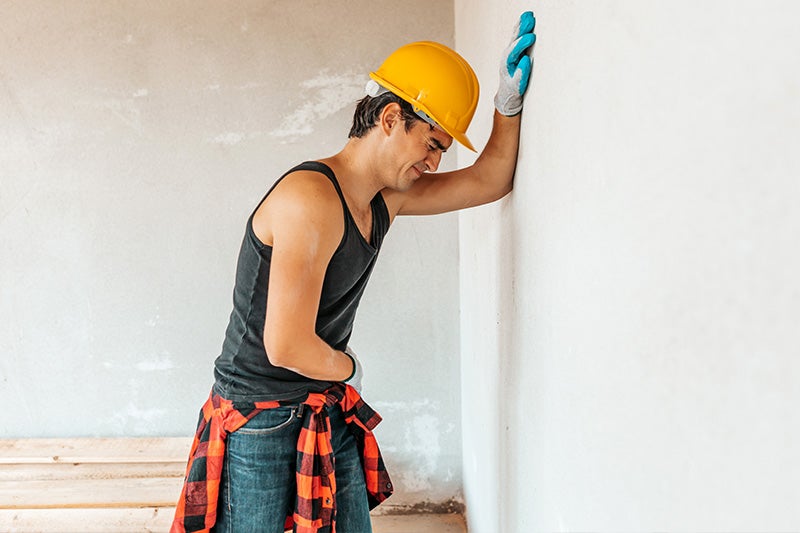
Causes of Hernias
Hernias can develop for many reasons, including:
- Previous abdominal surgery: Scar tissue and weakened muscles.
- Heavy lifting or excessive strain: Pressure that causes muscles to tear or separate.
- Weakened abdominal muscles: Loss of muscle strength over time.
- Obesity or body composition changes: Extra weight puts added pressure on the abdomen.
- Smoking/Nicotine product use: Weakens connective tissues that hold muscles together.
- Chronic coughing or sneezing (like with COPD or asthma): Persistent pressure on the abdominal wall.
- Long-term steroid use: Can weaken tissues and slow healing.
- Chronic constipation or trouble urinating: Can cause increased strain on the abdominal wall and groin muscles.
Do You Need Abdominal Wall Reconstruction?If you have a large or recurrent hernia that affects your comfort and quality of life, you might benefit from abdominal wall reconstruction. This is a surgery to rebuild the abdominal wall, fixing larger or more complex hernias. While hernias aren’t usually life-threatening, they can get worse over time without surgery — causing more discomfort and limiting your daily activities. |
What to Expect: Before, During, and After Hernia Surgery
Your First Appointment & Pre-Surgery Prep
We’ll start with a friendly consultation to get to know you and your health history. Our team will:
- Review your medical background: Understand your past surgeries and health conditions.
- Use imaging tests (like a CT scan or ultrasound) to assess your hernia: A detailed scan to see the hernia’s size and location.
- Create a personalized surgical plan: Tailored to your unique situation.
- Help you prepare for surgery with lifestyle tips: Like quitting smoking or managing your weight to improve results.
- Arrange any necessary lab tests: Blood work or other tests to make sure you’re ready for surgery.
The Surgery Itself
Depending on your hernia’s complexity, we’ll either use minimally invasive robotic techniques (small incisions with robotic instruments) or traditional open surgery (a larger incision to access the hernia).
- Approach: Robotic/laparoscopic or open surgery.
- Anesthesia: General anesthesia (you’ll be fully asleep and pain-free) is used for most surgeries, but some qualify for sedation (local anesthetic in "twilight" state).
- Procedure: Repairing the hernia, repositioning muscles, and reinforcing the wall with mesh (a medical material that provides extra support) if needed.
- Duration: 2–5+ hours, depending on complexity.
- Hospital Stay: You may go home the same day or stay overnight for more complex cases.
Recovery & Follow-Up Care
Everyone’s recovery is a little different, but most people can expect:
- 2–5 weeks to return to daily activities.
- 6 weeks before getting back to regular exercise.
- Activity restrictions: Avoid heavy lifting or strenuous activity early on.
- Follow-ups: For drain removal (if needed) and post-op check-ins to make sure you’re healing properly.
We’ll be with you every step of the way to make sure your recovery is smooth and successful.
If a hernia is holding you back, we’re here to help. Contact St. Mary’s Health Care System in Athens, GA, today to schedule your consultation — and take the first step toward feeling better! |
Your Hernia Repair Questions, Answered
Costs depend on your insurance and procedure complexity, but we’ll help you understand your options.
Many insurers don’t require a referral, but it’s a good idea to check your policy.
We perform robotic, laparoscopic (small incisions with a camera), and open surgeries, choosing the best approach for your situation.
We carefully evaluate each case and recommend the safest, most effective option for your long-term health.
While not every hernia presents in the same way, some common symptoms of hernias are:
- A lump or bulge causing physical disfigurement
- Pain
- Change in bowel habits
- Difficulty exercising or performing tasks related to occupations
At worst, a hernia can allow bowel or fatty tissue to push through the defect that then can get caught or “incarcerated” within the bulge. Usually, this feels painful, and the hernia area can feel both hard and tender.
If left untreated, the incarcerated tissue can become “strangulated,” where there is loss of blood flow and the possibility of infection or a perforation.
Many types of hernias may not require surgery and not emergencies. However, at worst, a hernia can allow bowel or fatty tissue to push through the defect that then can get caught or “incarcerated” within the bulge. Usually, this feels painful, and the hernia area can feel both hard and tender.
If left untreated, the incarcerated tissue can become “strangulated,” where there is loss of blood flow and the possibility of infection or a perforation. This is a surgical emergency.
Not every hernia requires surgery. Some hernias can be observed with minimal risks.
If you have a hernia, It is always best to be seen by a trained hernia surgeon to ensure the correct treatment plan is made that is specific to your medical case.
An abdominal wall reconstruction is a hernia repair technique reserved for larger/complex, and/or recurrent hernias that require rearrangement of the abdominal wall muscles, rectus, and obliques. Some patients qualify for minimally invasive techniques, while other patients may require an open approach. Often, redundant skin and scar tissue can be rearranged or removed during these surgeries.
When consulting with your surgeon, they may recommend abdominal wall reconstruction as part of your treatment. Your surgeon will walk you through the procedure that they believe is best suited for your specific case.
Robotic Surgery for Hernia Repair at St. Mary's Health Care System
Meet da Vinci: The Latest in Robotic Surgery Technology
At St. Mary's Health Care System in Athens, GA, we are proud to offer the da Vinci® XI, the most advanced robotic surgical system available today. Developed by Intuitive, this next-generation robotic platform enhances precision, efficiency, and outcomes in hernia repair and other surgical procedures.
How the da Vinci® XI Improves Surgery
- Enhanced visualization: The system provides a high-definition, 3D view of the surgical site.
- Superior precision: The da Vinci® XI allows for finer control of surgical instruments, reducing trauma to surrounding tissues.
- Minimized recovery time: Less tissue disruption leads to quicker healing and shorter hospital stays.
- Increased safety: Real-time computing and surgeon-controlled robotic arms help ensure safer and more accurate procedures.
How the da Vinci® XI Works
The da Vinci® robotic system consists of three key components:
- Vision Cart: Ensures seamless communication between system components.
- Surgeon Console: Where surgeons control the robotic instruments with precision.
- Patient Cart: Positioned beside the patient, holding the camera and surgical tools.
This innovative robotic system allows for minimally invasive procedures that result in less pain, fewer complications, and faster recovery times for our patients in Athens, GA, Oconee County, and surrounding areas.
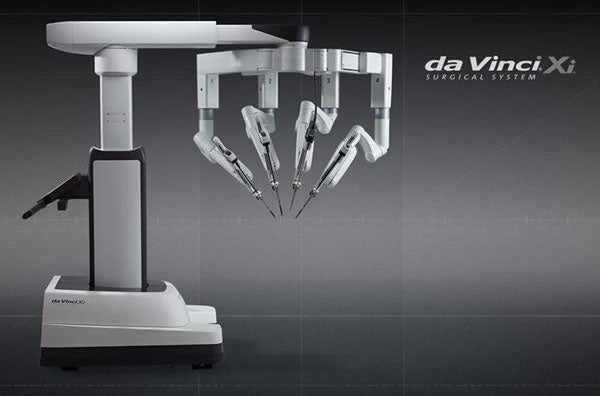
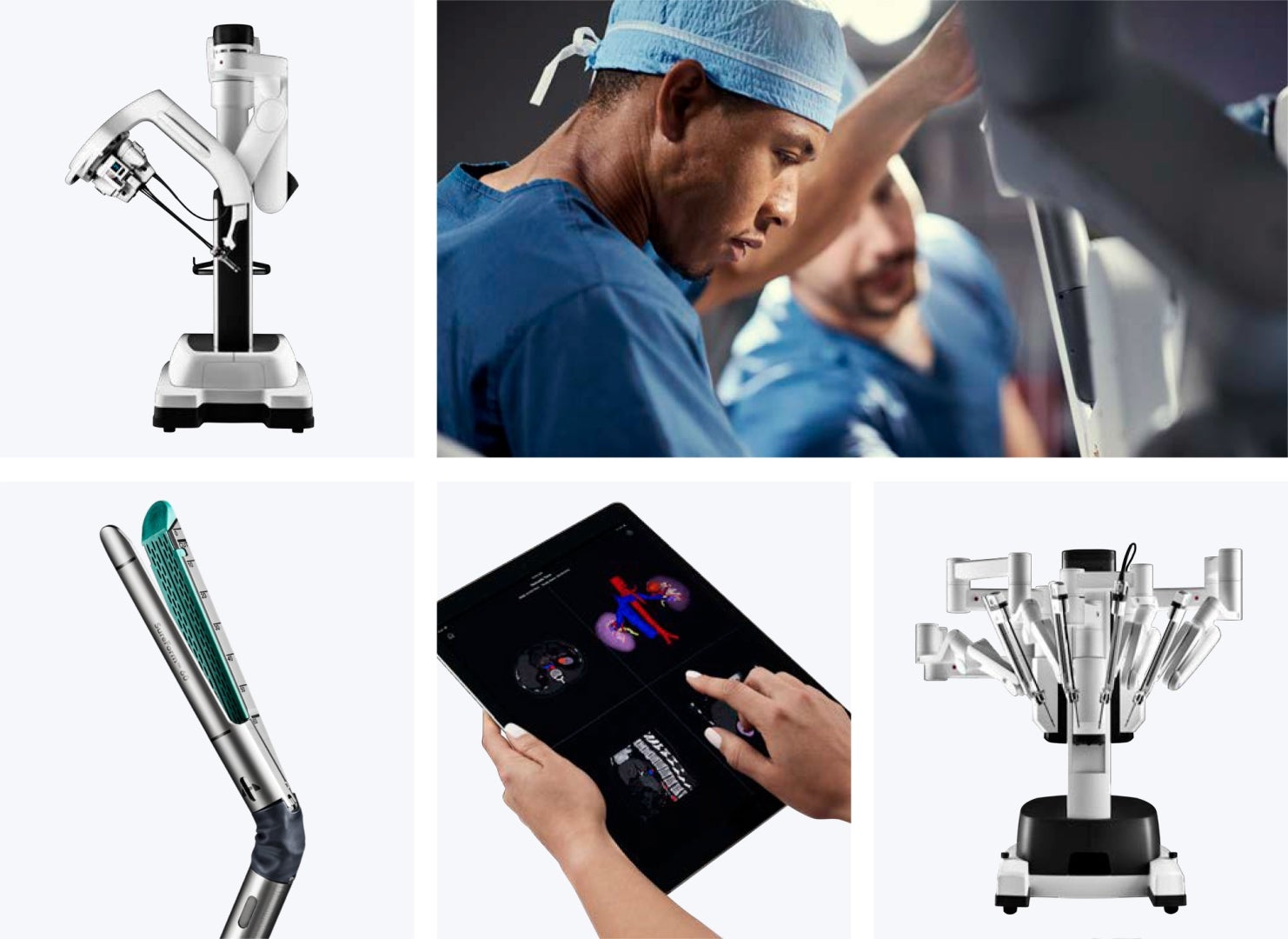
Why Choose St. Mary’s for Hernia Repair in Athens, GA?
At St. Mary’s, we put your health and happiness first. Here’s why patients trust us for their hernia repair:
- Experienced Surgeons: Our team is nationally recognized for excellence in hernia care.
- Cutting-Edge Technology: We use advanced robotic and minimally invasive techniques for faster, less painful recovery.
- Comprehensive Care: From your first consultation to your last follow-up, we’ve got you covered.
- Personalized Treatment Plans: Every patient is unique, and we tailor your care to fit your needs.
Our surgeons are skilled in both mesh and non-mesh repairs, choosing the best option to ensure long-term success.
- Mesh repair: Using a safe, medical-grade material to reinforce the abdominal wall.
- Non-mesh repair: Using your body’s own tissues if mesh isn’t the right choice for you.


